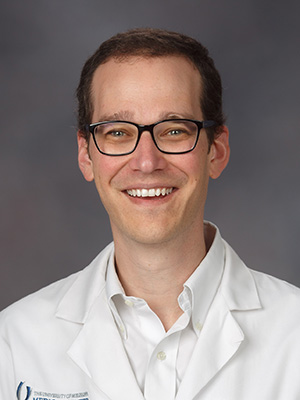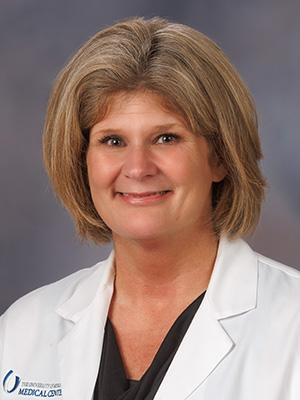Study: A statin a day reduces cardiovascular disease in HIV patients

Taking a daily statin reduces the risk of cardiovascular disease in patients living with HIV by more than 35 percent.
That’s the key finding of a clinical trial funded by the National Institutes of Health, the results of which have been published in the New England Journal of Medicine.
The Randomized Trial to Prevent Vascular Events in HIV, REPRIEVE for short, enrolled more than 7,000 men and women from 145 sites in 12 countries, following them an average of five years.
REPRIEVE is the largest randomized trial focused on the effect of low-dose statins in reducing cardiovascular risks in people living with HIV.

Of the participants, 25 enrolled at the University of Mississippi Medical Center’s Adult Special Care Clinic, where Dr. James “Ben” Brock, associate professor of medicine/infectious diseases, was principal investigator.
Although people living with HIV have a higher risk of developing cardiovascular disease, researchers had not yet studied if they would benefit from aggressive statin therapy.
Participants ranged in age from 40 to 75, with an average age of 50, and had low-to-moderate risks for cardiovascular disease, which means they would otherwise not have been prescribed statins.
“The REPRIEVE trial sought to answer that question and demonstrated benefit of statin therapy compared to placebo in people with low to moderate predicted cardiovascular risk,” said Brock, “which is fantastic in that it provides guidance to clinicians for a way to actually address that increased cardiovascular risk in people with HIV who would not have previously received a statin in routine clinical practice.”
Researchers randomly placed participants in the double-blinded study to either receive pitavastatin calcium, a drug used to lower cholesterol, or a placebo pill. That means neither the participant nor the researcher would know if patients received the statin or the placebo.
During the trial, researchers compared how often participants in each group had major cardiovascular events including heart attacks, strokes or surgery for a blocked artery.
Though participants were followed for five years, the trial ended early when it became clear the treatment benefits outweighed potential risks.
Brock wasn’t surprised by the results. “What was surprising was that the benefit in the lower risk group was higher than expected.”
Researchers also found that participants taking the daily statin were 21 percent less likely to die following a cardiovascular event.

Aubri Hickman, the study’s co-investigator and clinical research site coordinator, is a nurse practitioner and director of UMMC’s federally funded Ryan White Program, which provides specialized care at the ASCC for people living with HIV.
The results are particularly significant, she said, since HIV, a virus that attacks the body’s immune system, has gone from a terminal illness to a chronic manageable condition with life expectancies comparable to the general population.
“Advancements in HIV treatments have allowed a paradigm shift, refocused on primary prevention strategies aimed at improving long-term outcomes, such as cardiovascular risk,” Hickman said. “Even after controlling for traditional risk factors, people living with HIV are significantly more likely to develop cardiovascular disease including heart attack and strokes.”
Patients who participated in the trial benefitted in more ways than one, she said.
“There are clear direct benefits to our patients through participation in REPRIEVE, but there are also less obvious benefits,” said Hickman. “When a patient contributes to the science that advances health care that is personal and the knowledge could not be obtained without their participation, it is phenomenal.”
An estimated 1.2 million people in the United States had HIV at the end of 2021. Mississippi ranks seventh in the nation for HIV infection, and Jackson ranks third among all metropolitan areas for AIDS diagnoses. AIDS is an incurable, life-threatening condition caused by HIV.
Though the REPRIEVE findings will result in improved cardiovascular health for countless people living with HIV, and lives saved, more needs to be done, said Brock.
“Our patient cohort with HIV is aging and needs aggressive management of cardiovascular risk factors to prevent morbidity, such as smoking cessation, blood pressure control, statin therapy and other lifestyle interventions such as dietary and exercise optimization,” said Brock. “This cannot be disentangled from the social determinants of health. It is tunnel-visioned to counsel a patient to eat more healthily whose basic needs are not being met or who lives in a food desert.
“We provide patients at ASCC some social support services, but ultimately, improving the environment in which patients live – which would have the biggest population level impact on health, more than statins – is the role of policymakers.”
Hickman said the ASCC is integrating the trial’s finding into its practice.
“Our job is to provide information and tools for patients to participate in shared decision making, and REPRIEVE has offered new information.”


